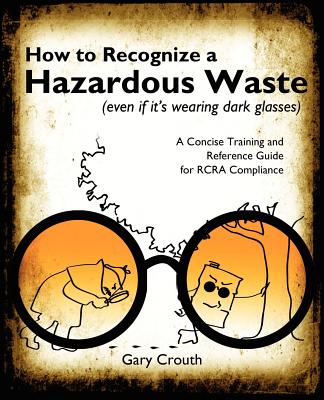
Crouth, Gary
According to Environmental Protection Agency (EPA), more than 16,220 waste generators produced over 35.3 million tons of hazardous waste in 2009 in the United States. Every firm that generates hazardous waste must, by law, handle that waste in accordance with regulations under the Resource Conservation and Recovery Act (RCRA). Failure to do so can harm the environment and human health and trigger civil and criminal and enforcement actions, resulting in huge monetary fines and penalties, lengthy prison terms and plant closures.
" But what exactly is a hazardous waste?" For the purposes of compliance with RCRA regulations, the answer to this question is a complex one, entangled in a web of definitions, policy, rules and guidelines that are ambiguous, unfamiliar and sometimes contradictory.
If you are responsible for complying with RCRA regulations, or working with those who do, you ll want to read "How to Recognize a Hazardous Waste (even if it s wearing dark glasses)." This is the updated and expanded edition of the book which, for over two decades, has been helping companies comply with the law. This book distills RCRA s myriad of hazardous waste identification rules, policies, and guidelines to their essence, presenting them in a straight-forward manner using illustrations, diagrams, and simple, clear language.
Features include:
questions and answers at the end of each chapter making it an excellent training guide flow diagrams that simplify regulatory mazes clear explanations of the toxicity characteristic leaching procedure (TCLP), hazardous debris, and the contained in policy and rule special sections covering used oil regulations and universal wastes examples that show principles of hazardous waste identification and classification guidance to help you determine if a listed waste may be delisted inventory and profile sheet organizes solid waste information a list of significant EPA regulatory memoranda that show you where to get additional information
Written by an environmental regulatory expert who devoted his career to the handling of hazardous wastes, the dark glasses book takes a simple approach with plentiful illustrations making it ideal as both a training guide and reference material.







